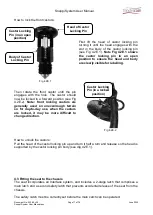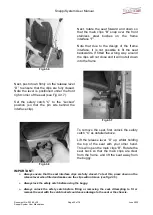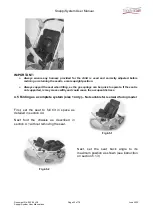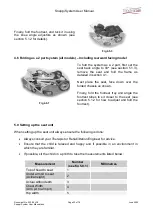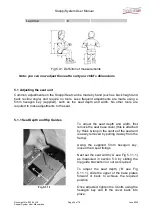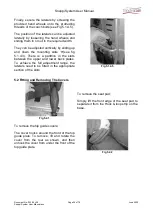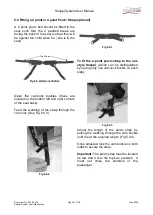
Snappi System User Manual
Document No: 053-05 v38
Page 16 of 76
June 2022
Snappi System User Manual.doc
Fig 4.2.7
Fig 4.2.8
The brake leavers feature an automatic lock
mechanism and will lock with the brakes on.
The system features 3 locking positions with
different levels of braking force. We
recommend to always use the 3
rd
(strongest) position to ensure occupant
safety.
To release the brake lift the smaller release
catches on the handles to release the
automatic lock as shown (see Fig 4.2.9,
right).
Fig 4.2.9
Note:
Do not leave the pushchair on a slope, even with the brake on. Always ensure that
the pushchair is on level ground to prevent risk of injury to the occupant and help
prevent tipping .
Do not attempt to push the pushchair when the brake is locked off. Doing so may
damage the brake mechanism. If you need to slow down the momentum of your
pushchair (i.e. when on a hill), you must not lock off the brake; rather, you must
keep your finger pressed on the automatic lock as shown in Fig 4.2. 9, above, to
ensure the lock does not engage.
4.2E Front Locking Castors (Optional)
Front locking castors are available as option upgrade to the wheelbase. These are a
factory fitted option, so should be included on the order at time of purchase. Alternatively,
the pushchair can be returned to the Tendercare factory for fitting if ordering for an existing
pushchair.
















